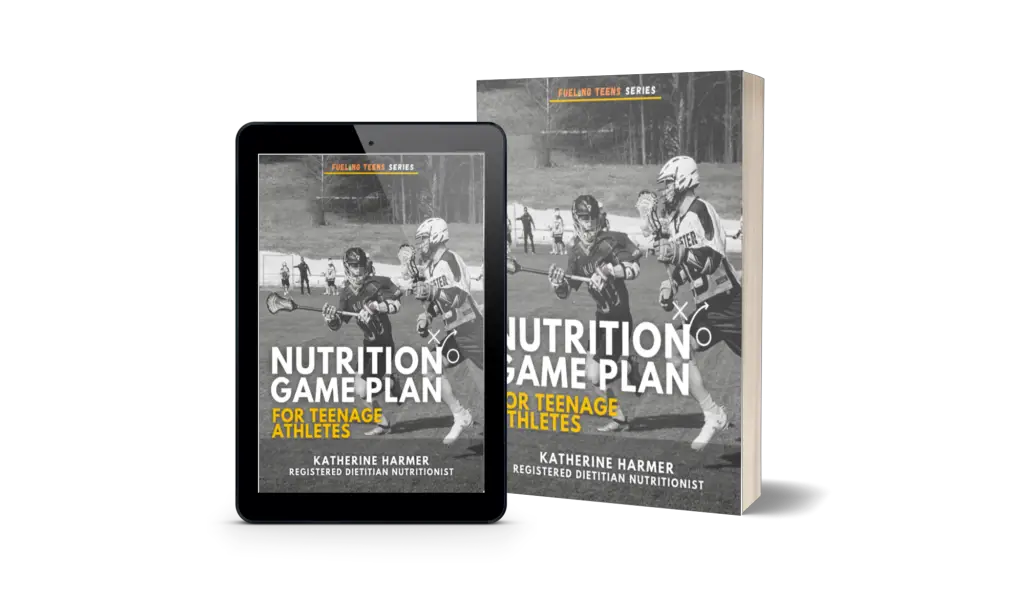The teen years can be a roller coaster as you get used to all of the changes your body is going through. So much physical, emotional, and mental development is all happening at once. As your body develops and changes, you may wonder what is a healthy weight for you at age 17.
A healthy weight for a 17-Year old is defined as having a Body Mass Index (BMI) between the 5th and 85th percentiles on the Center of Disease Control and Prevention’s (CDC) growth charts. A 17-year old male at 69 inches tall would be classified as a healthy weight between 120 to 168 pounds (56 to 76 kilograms). A 17-year old female at 64 inches tall would be classified as a healthy weight between 100 to 146 pounds (45 to 66 kilograms). Teenagers of different ages and heights would be classified in different categories.
As simple as this sounds, more health data must be collected to determine if someone is healthy, BMI and growth percentiles can be good screening tools to see trends in a teen’s growth over time.
Read more to find out what factors help determine a healthy weight for a 17-year old and tips to help 17-year olds be the healthiest they can be.

What is Overweight for a 17-Year Old?
The CDC growth charts classify a 17-year old as being “overweight” if they are above the 85th percentile. “Obesity” is classified as being above the 95th percentile. For example, a 17-year old male at 69 inches tall (5 feet 9 inches) would be classified as overweight above 168 pounds (76 kilograms). A 17-year old female at 64 inches tall (5 feet 4 inches) would be classified as overweight above 146 pounds (66 kilograms). However, these classifications do not always perfectly correlate with health status, so other factors should be considered.
Using and Interpreting Growth Charts for Teens
As teenagers grow and develop, what is considered a “healthy” weight range is also constantly shifting. This is why understanding how to read and interpret growth charts can be helpful
Growth charts look at a 17-year old’s weight compared to other individuals of the same height, age, and sex. Although more health data must be collected to determine if someone is healthy, BMI and growth percentiles can be good screening tools to see trends in a teen’s growth over time.
Below are the steps to use and interpret a growth chart for a 17-year old. This will help you better understand how your healthcare provider gets these percentiles and what they mean.
- Calculate BMI using your (or your teen’s) height and weight. The CDC has created an online calculator that makes it easy to figure out BMI.
- Choose the correct growth chart. Since girls and boys have different developmental patterns, there are two different growth charts. Both growth charts are shown below.
- Look for your age at the bottom of the graph and your calculated BMI on the sides of the graph. Find where those two lines intersect. That will be the point you will evaluate.
- Percentiles are shown to the right of the growth chart. The growth charts below are color-coded to make it easier to read classifications. The red area (>95th percentile) is classified as obese, yellow (85-95%) is classified as overweight, green (5-85%) is normal weight, and blue (<5%) is underweight.
- If you are outside of the “healthy” weight zone, there is no need to panic, but your doctor or dietitian should do more analysis and keep an eye on the trends to make sure everything is on track.
Long term growth trends are more important than a single point in time. Teenagers growth changes rapidly, and one period of time outside of a “normal BMI” is nothing to be concerned about. Check in with your healthcare team to discuss possible causes.
For Girls. Image Courtesy of Penn State PRO Wellness
For Boys. Image Courtesy of Penn State PRO Wellness.
What is a Healthy Weight for a 17-Year Old?
A BMI between the 5th and 85th percentiles is technically what classifies someone as having a healthy weight. However, everyone’s body is so different and there is not a “perfect” weight that all 17-year olds should aim for.
According to the BMI-for-age percentiles, a 17-year old boy at 69 inches tall (5 feet 9 inches) would be classified as a healthy weight between 120 to 168 pounds (56 to 76 kilograms). A 17-year old female at 64 inches tall (5 feet 4 inches) would be classified as a healthy weight between 100 to 146 pounds (45 to 66 kilograms).
What is healthy for one person may not be healthy for another. In fact, when looking at eating and exercise habits, even teens that fall in a “healthy” weight range according to BMI and growth charts, might still not be truly healthy when taking other things into account. On the other hand, since BMI doesn’t take into account body composition, athletic and more muscular teens may be classified as “overweight” or “obese” based on BMI, when in reality they are extremely healthy.
Weight and body shape are not the main indicators of health. Health can be found at any size. 17-year old’s should be able to recognize and appreciate body diversity. If you find yourself comparing your body shape and weight to those around you, it might be time to take a step back and rethink how you view your view of healthy.
If you are interested in weight loss as a teenager, it’s important to learn what advice is real and legitimate, and what just comes from fad diets and harmful sources. I’ve written an e-Book guide and month-long meal plan to help teens establish habits that will help them get to a healthy weight and maintain it. It will help teens develop attitudes and behaviors that will lead to a positive relationship with food and nutrition throughout their lives.
The book is available in the Downloads section of my website here – Downloadable Content.
What Factors Can Impact a 17-Year Old’s Weight?
17 is an age of increased freedom and individuality. It is a time where you get to make more of your own decisions, many of which impact your health.
Food and exercise habits are the two biggest factors that teens have control over. However, those are not the only two areas that impact health and weight. There are other things within your control that have a huge impact.
Sleep– Sleep is such an essential part of overall health. With the busy-ness of their schedules, teens are often not getting enough rest. 8-10 hours of sleep per night is usually adequate for most 17-year olds. The body needs enough time to reset and repair, so that the body can function at its highest level.
Mental health– Mental health also plays a role in weight. When hormone levels in the body are elevated because of stress, the body can actually tend to store more fat. The prevalence of anxiety and depression are also growing, which can impact appetite and lead to increased emotional eating.
Stress– Teenagers are often under a lot of stress and pressure. This is a key time for them to learn to cope with negative emotions without using food. This might mean seeing a therapist, practicing meditation, finding new hobbies, trying a new medication, saying a prayer, going on a walk, talking to a friend, journaling, or something else.
See also: What Causes Weight Gain in Teenage Girls?
Should a 17-Year Old Go On a Diet?
It is challenging not to get caught up in the dieting culture that rules our society. You may feel pressure to change your body, but dieting for quick results is not the answer and can be very harmful.
Teenagers should not participate in any kind of restrictive diet. At 17, your body is still growing and developing. Eating too few calories and cutting out food groups can lead to missing out on key nutrients essential for this time of growth.
Instead of only trying to change your body, focus on healthy eating and exercise habits that are within your control. What really makes your body feel good? Your body weight will settle into a healthy weight range when you have good health habits and listen to your body.
If you struggle with body image, you are not alone. Practice respecting your body, even when it may feel challenging to fully love your body. Positive, lasting health changes never come out of a place of self-deprecation or of hating your body. Below are some thoughts that could be helpful in learning body respect.
- My body is strong and resilient.
- Every cell in my body is working to keep me alive right now. My body is an amazing machine!
- My body helps me do all the things I love.
- My body takes care of me even when I don’t always give it what it needs.
See also: Should I Tell My Teen They Need to Lose Weight? Tips from a Dietitian
When Should a 17-Year Old Lose Weight?
Weight loss is rarely advised for 17-year olds. If weight loss is ever recommended by a doctor or dietitian, it should be done under direct supervision of a healthcare professional. Focusing too much on weight loss with teenagers can lead to other negative feelings, behaviors, and habits.
The main goal should be to slow the rate of weight gain, rather than to lose weight. Find small ways to include more healthy habits in your daily routine. This is a much more sustainable approach to health than a quick weight loss diet.
Being at a higher weight does not necessarily mean you are unhealthy. Talk openly with your healthcare provider about your concerns with weight. They can help determine your overall health status and help you make positive health changes regardless of the number on the scale.
See also: How Can I Tell if my Teen is Overweight? Advice from a Dietitian
Healthy Eating Habits for a 17-Year Old
If getting to a healthier weight is appropriate for a 17-year old, do not try to lose weight unless under the supervision of a doctor and dietitian. However, all 17-year olds can adopt healthier eating habits in order to maintain (or get to) a healthy weight that will benefit them longterm. If you develop appropriate and beneficial eating habits in your teen years, you’ll never have to diet a day in your life. Here are some healthy habits to start doing today:
- Focus on variety and balance each time you eat. You can still eat all of your favorite foods, just learn to get a balance of carbohydrates, proteins and fats to be properly fueled and satisfied.
- Take at least one meal per day where you can put aside all distractions (phones and screens) and just focus on what you are eating. Focus on your 5 senses and really connect with the food you are eating. Make sure the food you choose is enjoyable to you.
- Increase your fruit and vegetable intake. Try to get one or the other every time you eat, for meals and snacks.
- Evaluate your hunger and fullness levels while you eat. Try to find that point at which you feel satisfied without getting overly full.
- Do not go a long time without eating. The body needs food regularly throughout the day. It is much harder to be mindful when you get overly hungry and have unhealthy cravings.
Healthy Exercise Habits for a 17-Year Old
17-year olds should find some type of physical activity that they enjoy and can commit to doing regularly. The best type of exercise is the one that you will do.
- Find fun activities that keep you active for at least 60 minutes per day. Not only is exercise beneficial for physical health, but it has also been shown to help with stress levels and improve mental health.
- Include movement that strengthens your heart, muscles, and bones. Do a wide variety of activities that help with coordination and skill development.
- Try to incorporate activity throughout the day to get breaks from sitting.
4. Think outside of the box when it comes to being active. You don’t have to play sports, run, or lift weights. Try taking the dog for a walk, running stairs, playing golf, throwing a frisbee, skateboarding, tennis, rock climbing, swimming, jumping rope, etc.
The Bottom Line
As a teenager, learning to take care of your physical, mental, and emotional well-being will put you lightyears ahead of those that don’t learn those skills. As you practice incorporating body respect and healthy habits into your life, you can reach a weight that is appropriate for your body, but more importantly, you will feel your very best.
Related Questions
What is Overweight for a 17-Year Old? According to the BMI-for-age growth charts, a 17-year old male at 69 inches tall (5 feet 9 inches) would be classified as overweight above 168 pounds or 76 kilograms. A 17-year old female at 64 inches tall (5 feet 4 inches) would be classified as overweight above 146 pounds or 66 kilograms. Taller or shorter 17-year olds would have different weight classifications. You can estimate your teen’s classification with the CDC’s BMI Calculator.
What is the Normal Weight for a 17-Year Old Female? A 17-year old female at 64 inches tall (5 feet 4 inches) would be classified as a healthy weight between 100 to 146 pounds (45 to 66 kilograms). Teenagers of different ages and heights would be classified in different weight categories.
How Do I Know if I am Overweight for my Age? Adults typically use BMI values to assess overweight or obese status, and children and teens use BMI-for-age growth charts to classify overweight or obese. Children and teens are classified as overweight above the 85th percentile for BMI-for-age. Estimate your teen’s weight classification using the CDC’s BMI Calculator here: https://www.cdc.gov/healthyweight/bmi/calculator.html.
Can You Still Grow at 17? Most teen girls stop growing taller around age 14 to 15, and most teen boys stop growing around age 16, however it is possible for teenagers to keep growing until age 20. Make sure you are getting plenty of sleep, exercise, staying hydrated, and eating highly nutritious foods in order to reach your full potential of height.
Related Posts
- How Many Calories Does a 17 Year Old Need?
- What Happens if You Work Out Regularly But Don’t Eat Enough Calories?
- The Best Healthy Breakfasts for Teen Weight Loss
- How Can a 16-Year Old Lose Weight Fast?
Looking for more specific help? Check out my newest ebook: Nutrition Game Plan for Teenage Athletes for a 28-day meal plan, weight tips, supplement tips, snack list, and much much more.

Check out some of my other sport-specific meal plans:
- Nutrition Meal Plan for Teenage Basketball Players
- FREE Meal Plan for High School Football Athletes
- FREE Downloadable Meal Plan for Teen Soccer (Football) Players
Resources
Centers for Disease Control and Prevention. About Child and Teen BMI. cdc.gov. Published March 17, 2021.
Centers for Disease Control and Prevention. Childhood Obesity Causes and Consequences. cdc.gov. Published March 19, 2021.
Centers for Disease Control and Prevention. Sleep in Middle and High School Students. cdc.gov. Published September 10, 2020.
Fueling Teens is a participant in the Amazon Services LLC Associates Program, an affiliate advertising program designed to provide a means for sites to earn advertising fees by advertising and linking to Amazon.com. We also participate in other affiliate programs which compensate us for referring traffic.

